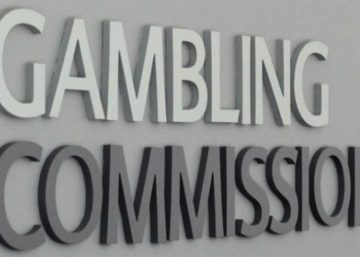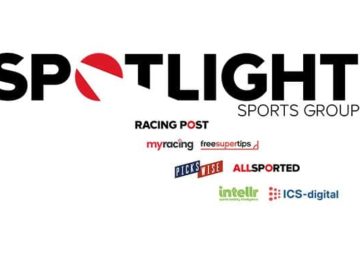Analysis: Lessons the SGA should take from 2019
More than one year on from Swedish re-regulation and it would be an understatement to say the market has experienced a few growing pains.
Issues in Sweden were a main feature in quarterly results for a number of companies throughout the year, and this week we learned this trend would continue into Q4.
In its last financial report of the year, NetEnt described “continued weakness, mainly in Sweden and Norway.” As a result, even the acquisition of Red Tiger in September did little to increase the operator’s marginal growth, with total revenue of SEK 1.79bn ($186.1m) for the full-year 2019, a rise of 1% year-on-year.
Kindred also attributed its challenging year to Swedish re-regulation, reporting a marginal revenue rise of 1% for 2019, generating a total of £912.8m ($1.18bn).
Speaking with Gambling Insider, Kindred Group CEO Henrik Tjärnström explained how he believes the operator is back on track in regards to Sweden, but it is clear the challenging market has taken its toll, adding that Kindred is “on a slightly lower trajectory” than expected.
In light of these difficulties, what are some of the lessons the Swedish Gambling Authority (SGA) can take from this first tumultuous year?
Creating a dialogue
Last year saw a number of operators fined or warned by the SGA for breaching regulation and, although regulatory infringements are an inevitable part of any adjustment period, the number of appeals against these penalisations is significant.
Out of the 18 fines dished out by the SGA over 2019, 17 companies chose to appeal the decisions, with Paf being the only company agreeing to pay its penalty – perhaps because it was also the smallest fine of SEK 100,000.
Speaking about the number of appeals, Camilla Rosenberg, SGA Director-General, said she was “a little bit surprised” operators thought so much was unclear in regards to regulation.
If we take a look at these cases individually, it is evident operators believe there has been a breakdown in dialogue between the regulator and themselves.
Betsson was added to this list of penalised companies after its subsidiary NGG Nordic was fined SEK 19m for offering incentives to players.
Speaking at the time, Betsson Group CEO Jesper Svensson insisted more of an open dialogue between the SGA and operators was necessary to reduce the number of these inflictions – although he insisted he remained hopeful for the future.
He told Gambling Insider: “The dialogue between operators and the regulator is not as developed as it is in other jurisdictions, so I think that will improve moving forward. It also comes down to getting the right guidance. If there is something you need guidance on in the new regulation, it’s important the regulator gives the operator that information and not just refer them to a legal paragraph.”
This is a sentiment mirrored by Global Gaming CEO Tobias Fagerlund, who experienced a baptism of fire in July after being officially appointed CEO of the operator.
Shortly after the re-regulation, Global Gaming subsidiary SafeEnt had its Swedish license revoked for “serious deficiencies” in business practices – effectively halting the operator’s activities in the country.
Speaking with Gambling Insider at the time, Fagerlund admitted the subsidiary had breached regulation, but attributed this failing in part to unclear guidelines set out by the SGA on 1 January.
If the SGA is aiming to ensure compliance this year, it can learn from 2019 by creating a clear dialogue with licensed operators – something perhaps lost in the speedy process of re-regulation. But how willing will the regulator be to adapt here?
Increasing channelisation
Following a meeting between the SGA and licensed operators in September 2019, it seemed the Swedish market was meeting its targets for channelisation levels.
SGA coordinator Marcus Aronsson announced the market had experienced a 91% channelisation rate in H1 2019, based on data obtained through coordination between the SGA and Swedish taxation authorities. Despite this, many operators felt the issue was insufficiently addressed in the meeting.
When questioned about his feelings on the issue, Gustaf Hoffstedt, Secretary General of Branschföreningen för Onlinespel, the Swedish trade association for online gambling, said: “There have been more than 40 ongoing penalty cases towards license holders and none towards unlicensed operators that target Swedish customers.
“That is not sustainable in a healthy licensing regime. We as an industry and the authority have a joint interest here.”
Only one month after this meeting and the issue rose again when the SGA lowered its channelisation estimations for H2 to 85-87%, also seeming to backtrack on the original figures for H1 as potentially inaccurate.
Since then, channelisation rates have been addressed by a number of operators; most recently in Betsson’s latest quarterly report, which saw revenue of SEK 1.29bn for Q4 2019, a drop of 10% year-on-year.
Describing challenges in Sweden, Betsson AB President and CEO Pontus Lindwall said: “We have seen declining channelisation, which makes it difficult for the licensed operators who pay 18% gaming tax and it also jeopardises consumer protection.
“High channelisation contributes to competition on equal terms for the companies in the sector that operate in the Swedish market.”
It is a topic also unsurprisingly important to Fagerlund of Global Gaming. Speaking with Gambling Insider at ICE London 2020, he explained that channelisation is a key issue the SGA needs to work on this year.
He argued the failure of channelisation currently allows vulnerable customers who are signed up for Spelpaus, Sweden’s new national self-exclusion scheme, to be just “two clicks away from getting the same offer as licensed sites, but including bonuses, kick-backs and the VIP treatments on unlicensed websites.”
How will Sweden move forward?
Fagerlund suggested the SGA can increase channelisation rates by not issuing licenses or certificates to gaming suppliers who provide games for both licensed and unlicensed operators in Sweden – therefore excluding unlicensed gaming operators from the party. In addition, there is a danger posed by stricter advertisement restrictions for gambling operators.
At ICE London 2020, I attended a conference reviewing the year’s regulatory changes, and channelisation in Sweden was confronted by the panellists in relation to the SGA’s strategy for advertising limits.
Representing the SGA, Camilla Rosenberg explained she was pleased with the reduction of gambling advertisement in Sweden over the past year; also outlining plans to greater reduce the amount of gambling advertisement moving forward.
However, Yanica Sant, Senior Counsel for the Malta Gaming Authority, had a warning for the regulatory body in regards to implementing a full ban. She said: “A complete ban might do a lot to appease the public, but not a lot for channelisation.”
In support of Sant’s argument, Lindwall of Betsson insisted advertising can be a vital way for a potential customer to distinguish between a licensed and unlicensed gambling site. In this sense, implementing a ban on all advertising could do more harm than good.
This is a factor the SGA should certainly take into account moving forward in 2020, but it must also ensure it is honest and open with licensed operators on any progress made in increasing channelisation rates.
After all, licensed operators are not the enemy.
source: Gambling Insider







